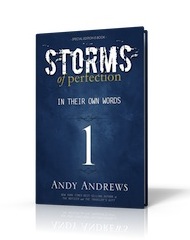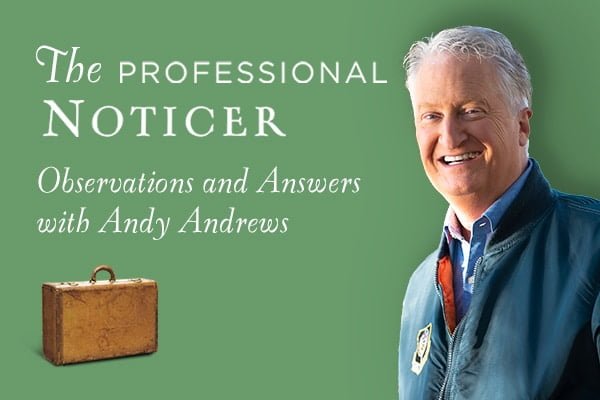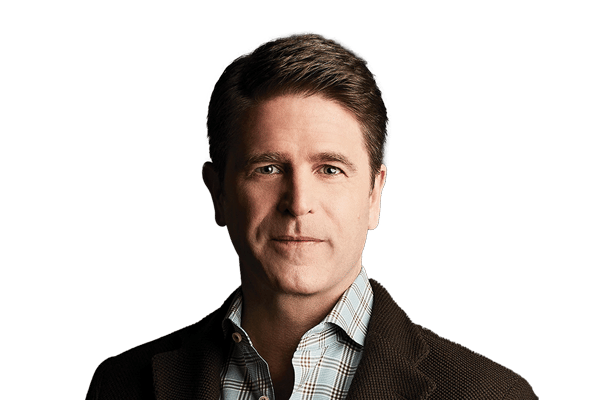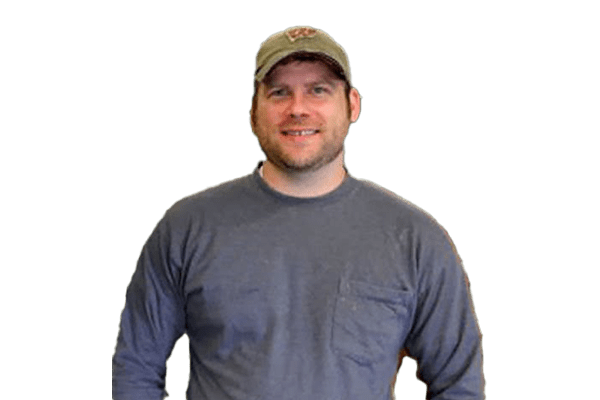 Over 20 years ago, I began publishing a series of books called Storms of Perfection. Each volume contained 52 letters written by extremely successful individuals in which they chronicled their biggest failures, setbacks, and hardships on their journey toward success.
Over 20 years ago, I began publishing a series of books called Storms of Perfection. Each volume contained 52 letters written by extremely successful individuals in which they chronicled their biggest failures, setbacks, and hardships on their journey toward success.
We self-published and released four volumes, and people loved them. Though they’ve been out of print for years, I still hear from the occasional satisfied reader.
However, I’m really excited to say that we are converting all four original volumes converted into eBook format, and Volume 1 is now available for Kindle, iPad, and Nook! You can find it on Amazon, Barnes & Noble, and iBooks, but first I want you to read a little more!
Getting the letters for each Storms of Perfection volume was one of the most difficult tasks I have ever faced—but it was also one of the most rewarding. I was able to read personal testimonies of success from people like Norman Vincent Peale, Chuck Yeager, Charley Pride, Florence Henderson, and many more. These were people I had read about and watched on television for years, taking the time to write me a letter!
But what ended up being particularly special were the times I received letters from the massively successful, but little-known people—like Si Frumkin.
Si wrote one of the most gripping and powerful letters I ever received, and it still affects me to this day when I read it. Lately, it became even more profound when I began working on my latest book, How Do You Kill 11 Million People?
You see, the takeaway from Si’s letter and the takeaway from my book are quite similar. Luckily, Si was able to figure it out years ago and help hundreds of thousands of people out of bondage and into freedom.
Pay special attention to the end, where Si identifies what he thinks is the most harmful phrase in all languages…I think he is right.
If you’ve read How Do You Kill 11 Million People? you will have a particularly unique perspective on the contents of Si’s letter…but even if you haven’t, you should still read it. The power it contains remains timeless.
Dear Andy:
I was sentenced to death for the crime of having been born. I was lucky. I cheated the executioner. My father, my grandparents, my uncles and aunts, my cousins, my friends—all died. They were all criminals, guilty of the same crime as I was: being alive!
This happened a half a century ago, in a faraway place, to people who spoke a different language than we do, people with whom we have little in common except for a desire to live and the ability to feel pain. It happened at a time when an evil philosophy divided humanity into humans and subhumans, those who deserved to rule and prosper, and those whose very existence was an abomination and who had to be rooted out. It was a philosophy that glorified violence and strength and war, and it succeeded in conquering most of Europe and ridding it of 6 million of my kind.
My kind? I am a Jew.
Let me digress for a moment for I can see your eyes glazing over—yeah, yeah, sure, the Holocaust and the nazis and the Jews and all that, and didn’t we hear all about it already, and hey, what’s the relevance to today? I believe that there is a relevance, for human nature hasn’t changed all that much in the last 2000 years, and surely not in the last 50.
Have you thought, for example, what our world would have been like if Hitler had won the war? Obviously, I wouldn’t be here writing this letter; I and all the other Jews in the world would be dead. We would not have been the only ones murdered—blacks, Indians, Gypsies were also subhuman and they too would be dead. Africa would have been emptied of blacks by atomic or chemical weapons, Latinos with more than 1/4 Indian blood would join the Gypsies in efficient death factories, and the history books would tell us of that great and wise man, Adolph Hitler, who half a century ago cleansed the planet of the evil, corrupt, disgusting subhuman races.
But enough of this; you said that you wanted to know about my life, so here goes. For the first ten years of my life I didn’t know that a powerful dictator of a great country had sentenced me and my family to death, that it was only a matter of time before the sentences might be carried out. I grew up in Lithuania—a free and independent country at the time¾and my early memories are of school, homework, friends, vacations that were much too short and teachers who were much too demanding. I was 9 when the Soviet Union occupied Lithuania and 10 when the Germans attacked the Soviet Union and captured Kaunas, the city we lived in, in just 3 days. Later I found out how lucky we were to have been living in a large city—special units that followed the advancing armies rounded up and killed all Jews that lived in the countryside and the smaller towns. Jews were allowed to live only in the 3 larger cities—they were put behind barbed wire and used as laborers.
I was lucky. I managed to hide when they came into the ghetto searching for children and old people, those who couldn’t work and had to be killed at once. I was lucky when selections were made and people were taken away to be shot at an old Russian fortress 10 miles down the road. The first dead body I saw was that of my grandfather—that day the Germans took two men from every corner house on every street, shot them, and left their bodies in the front yard. We lived on a corner and so they shot my grandfather and one of my uncles.
When the ghetto was formed, there were close to 40,000 Jews in it. Three years later, when they transported us to Germany there were only 11,000 left.
The camp they took us to was for men only; the women were taken to another camp, in Poland. Our camp was a subdivision of Dachau—one of 10 camps with about 3000 prisoners in each, surrounding a gigantic construction project¾an underground airplane factory. We worked 12 hour shifts, around the clock, never a day off, on a starvation diet. Every few weeks another transport would bring in a few hundred men to replace those who had died from exhaustion, hunger, or who had just given up.
I survived. I don’t think that it was because I was smarter or braver than those who didn’t. It was luck or fate, or a decision made for no rational reason, like the time when I decided to stay in the camp with my father, rather than be transported elsewhere with the other kids. A few weeks after we came to Dachau the Germans realized that there were about 60 boys among us who were under 16—too young to live. We were told that all of us would be transferred to another camp to learn a skill like carpentry or metalworking, and then be assigned to factories or workshops. I hid when the trucks came to take the others away. 56 were taken that day, transported to Auschwitz to have medical experiments performed on them. There were no survivors.
My closest brush with death came when I was caught by an officer as I was emptying a bag of cement on the ground. We would cut a hole in the bottom of the paper bag, two more holes on the sides and wear the bag, under the striped prison jacket, like a sleeveless sweater, to keep out the winter cold.
“Sabotage!”, yelled the German as he grabbed me and pulled out his gun. I stood there, petrified, knowing only that I was about to die. Then someone called his name and he turned. “My God”, he said to the other officer. “Fritz, I didn’t know you were stationed here… It’s good to see you again…” and as they shook hands and hugged, I turned and ran. They didn’t follow.
Three others weren’t as lucky. They too were accused of sabotage. They took a blanket that had belonged to a man who died, cut it into strips and wrapped them around their feet—it was winter and their boots had fallen apart. They were hanged, publicly, with all of us lined up at attention, watching.
But enough of this. These horror stories have been told time and time again and there is something else that I want to focus on, something that is seldom mentioned, a tragedy of neglect and indifference that eventually, decades later and continents away, prompted me to become involved in a cause that brought freedom to hundreds of thousands of persecuted human beings.
There were few suicides in the Nazi camps. There were those among us who had lost their will to live and lacked the strength to end it all—match stick limbs, shuffling along, never lifting their heads—and we knew that one day they wouldn’t wake up or would just fall down and die quietly, eyes open and staring.
The rest of us lived one day at a time—another day, and then another one, and then, if we lasted, there would be liberation and a new beginning. No one thought beyond liberation—we were convinced that the world cared about us, that it would be happy that we survived, that there would be cheers and congratulations, and so we lived on, a day at a time.
I was 14 years old when I was liberated by the U.S. Army. My father died 2 weeks before.
The suicides began a month or two after liberation, after we were taken out of the camp and relocated in a deserted German army camp nearby. There was food, medical attention, clothing. No one beat or brutalized us, and although there were American sentries at the gate, we were free to go anywhere we liked. The problem was that there was no place to go.
The world was less than happy with us, the pitiful hundreds of thousands of Displaced Persons who had managed to survive. There was no country that welcomed us, no place we could go to escape the cursed German soil. In the Soviet Union all came before a commission that asked, “If Hitler decided to kill all Jews, why did they let you live? You must have collaborated with the nazis or you too would be dead, right? Well, if you are a friend of the nazis you are no friend of ours and, so, off to the gulag with you…”
United States was a closed country; it took in a few thousand but for most, the wait for the rest was 10, even 15 years. South America sold visas—if you had a few hundred dollars you could go there, but no one had any money.
Australia, Canada, New Zealand, South Africa were unwilling to accept Jewish immigrants. The only place in the entire world that was willing to take in as many as wanted to come was Palestine—a British colony with a poor Jewish community of less than 600,000, but this too was closed by the British; the Royal Navy patrolled the Mediterranean, stopped the refugee boats that tried to sneak through, and imprisoned the passengers in a camp on Cyprus.
And so we realized that the world wasn’t happy that we had survived. The world didn’t know what to do with us. We were an embarrassment, a problem, a bother, and it would have been so much more satisfactory if we hadn’t lived. This was when the suicides began.
I wandered around Europe for a few years trying to catch up with the years of school I had missed. In 1949 I managed to be admitted to New York University and came to the States. In 1953 I graduated, got married and moved to California. On the surface, my life was almost humdrum—a house in the suburbs, a successful business, children…
For years, deep inside of me, I carried an anger against an indifferent world, the Allies who refused to bomb the death camps, the frontiers that were closed to Jews before, during, and after the Holocaust. And then, one day, I came to understand something both very profound and very simple—the world didn’t hate me or my people or the survivors in general. The world didn’t care about us simply because that is the way it is—the world just doesn’t care period. Within the last decade millions of innocents were killed—Cambodia, Tibet, Afghanistan, Nigeria, Sudan, Ethiopia, Liberia, and elsewhere. Few cared. We worried about traffic jams, baseball scores, homework, and other trivia. Human lives meant as little in the 60s, 70s, and 80s as they did in the 30s and 40s. It wasn’t fair, it wasn’t right, it was disgusting, but that was the way it was…
In 1969 I heard the message that changed my life. The message came from the Soviet Jews who constituted the 2nd largest Jewish community in the world and who were saying to anyone who would listen: “Why have you forgotten us?”
It was a powerful message and it touched a chord. I remembered the Displaced Persons camps in Germany when the world had forgotten about us, and I knew that something had to be done for the 3 million Soviet Jews—discriminated against, not allowed to study their history, their culture, speak their language, not allowed to live as Jews nor to leave the country where antisemitism was official policy.
In 1969 few people, myself included, knew about the problems of Soviet Jews. I had to learn from scratch and as I learned I realized that there were others like myself—caring, obsessed, willing to take on the Soviet superpower and force it to do what had been out of the question for the entire 50 years of its existence—permitting Soviet citizens to emigrate. I learned how to contact politicians, lead demonstrations, teach courses, make speeches, develop and print photographs, write press releases, use loudspeakers, be arrested, paint signs, walk picket lines, send books and other materials to Russia, and most of all, how to enlist people in this cause, how to project an image of power and massive popular support.
It took a long time, but the unthinkable happened. About 600,000 Soviet Jews have been allowed to exit to freedom over the last 20 years—as few as 500 in some years, as many as 200,000 last year. When the two superpowers met, the agenda more often than not included the Soviet Jewry question—in contrast to Allied indifference during the Holocaust. The world is aware of Soviet Jews—they may not know the details but just about everyone—Jew or gentile—knows that there is some kind of a problem there.
Most importantly, the message from the Soviet Union is no longer, “Why have you forgotten us?” They know that they haven’t been forgotten after all.
And so, my friend, this is the story of both my deepest misfortune and my greatest triumph. I firmly believe that the most harmful phrase in any language is, “This is terrible! Someone should do something about it”. Here’s a news flash: there is no someone, he left last October and he is never coming back! There is only you and you can do whatever needs to be done, so don’t wait for the someone—do it!
Sincerely,

Si Frumkin
Click on your e-reading device below to get your copy of Storms of Perfection 1.








